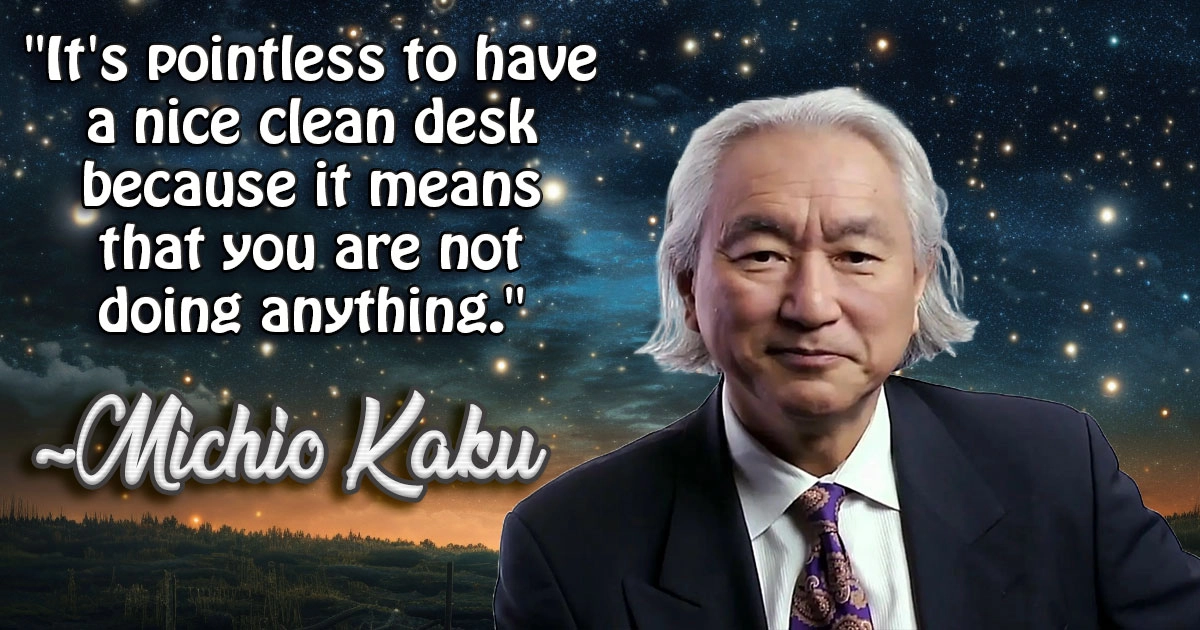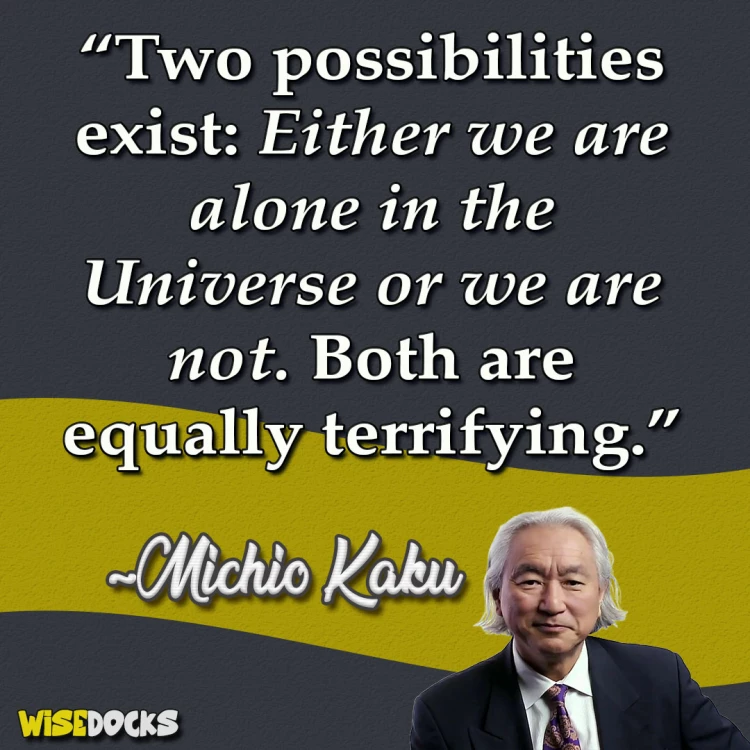
Michio Kaku, born on January 24, 1947, in San Jose, California, is a distinguished theoretical physicist known for his contributions to string theory and his efforts to popularize science. His parents were Japanese immigrants who arrived in the United States before World War II. Growing up in the backdrop of post-war America, Kaku's childhood was marked by curiosity and a fervent interest in science.

From a young age, Kaku demonstrated an exceptional aptitude for academics. His fascination with the universe and its underlying principles was sparked by the works of Albert Einstein. By the time he reached high school, Kaku had already embarked on ambitious science projects. One notable example was building a particle accelerator in his parents' garage for a science fair. This endeavor earned him the attention of physicist Edward Teller, who helped him secure a scholarship to Harvard University.
Kaku's journey through Harvard was characterized by academic excellence and an insatiable curiosity about the nature of the universe. He graduated summa cum laude with a Bachelor of Science in 1968. His time at Harvard solidified his desire to delve deeper into the mysteries of the cosmos, particularly the elusive goal of unifying the fundamental forces of nature.
After Harvard, Kaku continued his education at the University of California, Berkeley, where he earned his Ph.D. in 1972. His doctoral work focused on quantum mechanics and quantum field theory, laying the groundwork for his future contributions to string theory.
Kaku's interest in string theory began in the 1970s when the theory was still in its infancy. String theory posits that the fundamental particles of the universe are not point-like objects but rather tiny, vibrating strings. These strings can vibrate at different frequencies, giving rise to the various particles observed in nature. This theory has the potential to unify the four fundamental forces of nature: gravity, electromagnetism, the strong nuclear force, and the weak nuclear force.
Kaku's contributions to string theory have been substantial. Alongside his colleague Keiji Kikkawa, he formulated the Kaku-Kikkawa string field theory, an important step in understanding how string theory could describe the fundamental particles and forces of the universe. His work helped to establish the mathematical framework for string theory, making it a viable candidate for the theory of everything.
Beyond his groundbreaking research, Kaku is perhaps best known for his efforts to popularize science. He has a unique ability to explain complex scientific concepts in a way that is accessible and engaging to the general public. This talent has made him a beloved figure in the world of science communication.
Kaku's first major foray into popular science writing came with his book "Hyperspace," published in 1994. In this book, he explored the concept of higher dimensions and how they could explain many of the mysteries of the universe. "Hyperspace" was a critical and commercial success, introducing many readers to the fascinating world of theoretical physics.
Following the success of "Hyperspace," Kaku wrote several more books aimed at a general audience. Titles like "Parallel Worlds," "Physics of the Impossible," and "The Future of the Mind" further cemented his reputation as a leading science communicator. These works explored topics ranging from the nature of parallel universes to the future of human civilization and the potential for technological advancements.
Kaku's ability to communicate complex ideas has also made him a sought-after figure in the media. He has appeared on numerous television programs, radio shows, and podcasts, where he discusses the latest developments in science and technology. His charismatic presence and clear explanations have made him a favorite among audiences.
One of Kaku's most notable media ventures is his role as the host of the Science Channel's "Sci Fi Science: Physics of the Impossible." In this series, Kaku explored the scientific principles behind popular science fiction concepts, such as time travel, teleportation, and invisibility. The show was well-received and further demonstrated Kaku's ability to bridge the gap between science fiction and science fact.
Kaku has also been a frequent guest on news programs, where he provides expert commentary on scientific topics ranging from space exploration to climate change. His insights are valued not only for their scientific accuracy but also for their ability to make complex issues understandable to the general public.
Throughout his career, Kaku has been a vocal advocate for the importance of scientific research and technological advancement. He believes that science holds the key to solving many of the world's most pressing problems, from energy shortages to environmental degradation.
One of Kaku's primary areas of focus is the future of humanity. In his book "The Future of Humanity," he explores the potential for human civilization to expand beyond Earth and establish colonies on other planets. He envisions a future where humanity harnesses the power of advanced technologies, such as artificial intelligence and nanotechnology, to create a sustainable and prosperous civilization.
Kaku is also a strong proponent of space exploration. He argues that the exploration of space is not only essential for the advancement of scientific knowledge but also for the survival of the human species. In his view, establishing a presence on other planets is a necessary step to ensure the long-term survival of humanity in the face of potential global catastrophes.
Despite his busy career, Kaku has managed to maintain a balance between his professional and personal life. He is married to Shizue Kaku, and the couple has two daughters. Kaku often speaks about the importance of family and how his wife's support has been instrumental in his success.
Kaku's legacy is multifaceted. As a scientist, his contributions to string theory have advanced our understanding of the fundamental nature of the universe. As a communicator, he has inspired countless individuals to take an interest in science and pursue careers in STEM fields. His books, lectures, and media appearances have made complex scientific concepts accessible to a broad audience, fostering a greater appreciation for the wonders of the universe.
In recognition of his contributions, Kaku has received numerous awards and honors throughout his career. He is a Fellow of the American Physical Society and has been awarded the Klopsteg Memorial Award from the American Association of Physics Teachers for his work in promoting the public understanding of science.